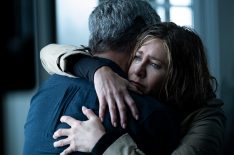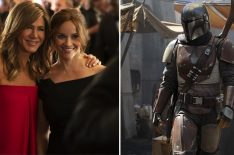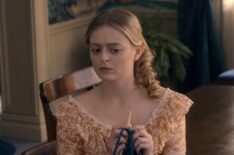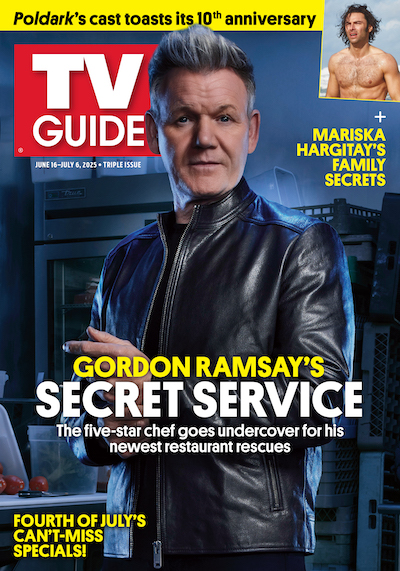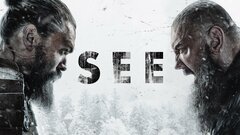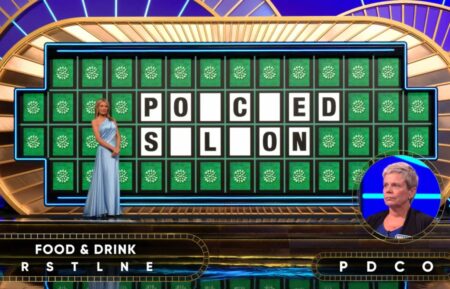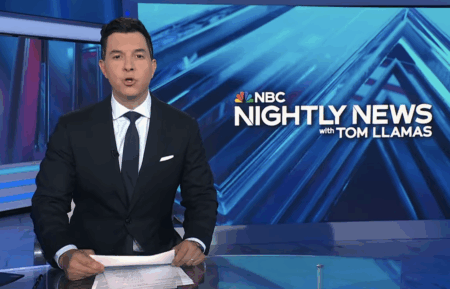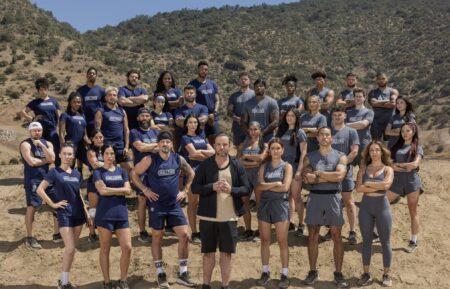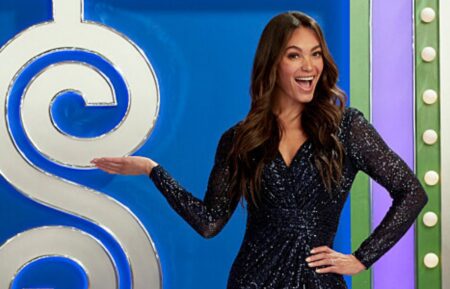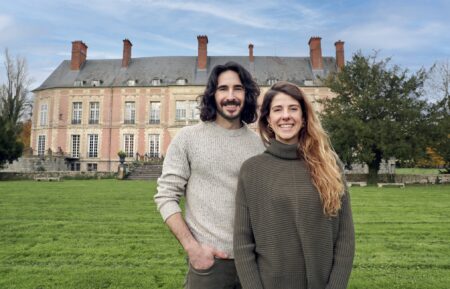‘See’ EP on Baba Voss’ Violent Past, Maghra’s Scream & the Twins’ Differences
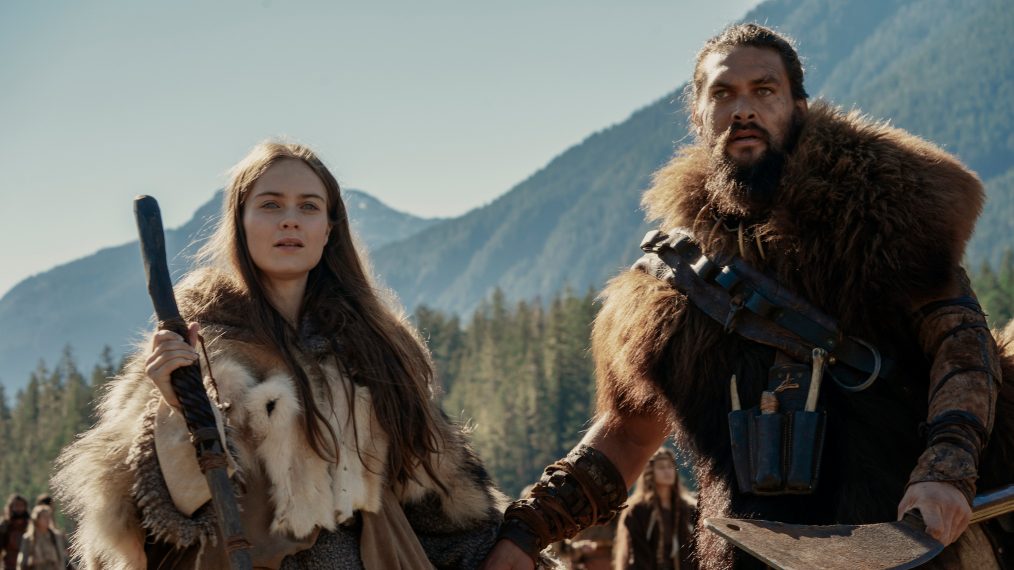
Q&A
[Warning: The below contains MAJOR spoilers for Season 1, Episodes 1-3 of See.]
With the launch of Apple TV+ comes a new series about a world left blind after a virus. In See, Jason Momoa stars as Baba Voss, the father of twins born with the ability to see, which is considered witchcraft.
The first three episodes, released November 1, span years as those twins grow up and must hide their sight, and this new world is revealed to viewers. “The fun part for me is and was slowly selling this idea that it may feel in the beginning to be somewhat ancient in nature because people are living in a tribal culture and we’re witnessing a birth in a cave and the use of fire and there doesn’t seem to be electricity,” director and executive producer Francis Lawrence tells TV Insider. “But then the first real hint of our civilization as we know it is the woman who’s given birth is given a sip of water from a plastic water bottle.”
When it comes to creating the world visually, Lawrence explains they wanted it to feel like a North American show. “[We were] trying to find the best, most beautiful spots to sell nature and its wild beauty having overtaken civilization as we know it,” he says. “I also wanted to do everything in a very immersive way. We built our villages and even the interiors in these remote locations. We didn’t step on stage until Episode 6.”
Here, Lawrence breaks down the biggest moments from the first three episodes, including the twins’ biological father.
In Episode 3, we get a look at a very different side of Baba Voss, one he wanted to hide from his family. How does what he has to do and reveal about himself affect him?
Francis Lawrence: With any kind of action sequence and especially something that’s as violent as [that] sequence, I try and make sure there’s a purpose for the violence, in terms of the narrative or in terms of character revelation or emotional value. What I love about that is we’d been hinting at a dark past to Baba Voss for the first couple episodes, and we finally reveal what that dark past was and he has to go in and save his son. But the one thing he doesn’t want is his children to see what he’s capable of. … Part of the heartbreak for him is both children witness this very violent side of their father they didn’t know existed.
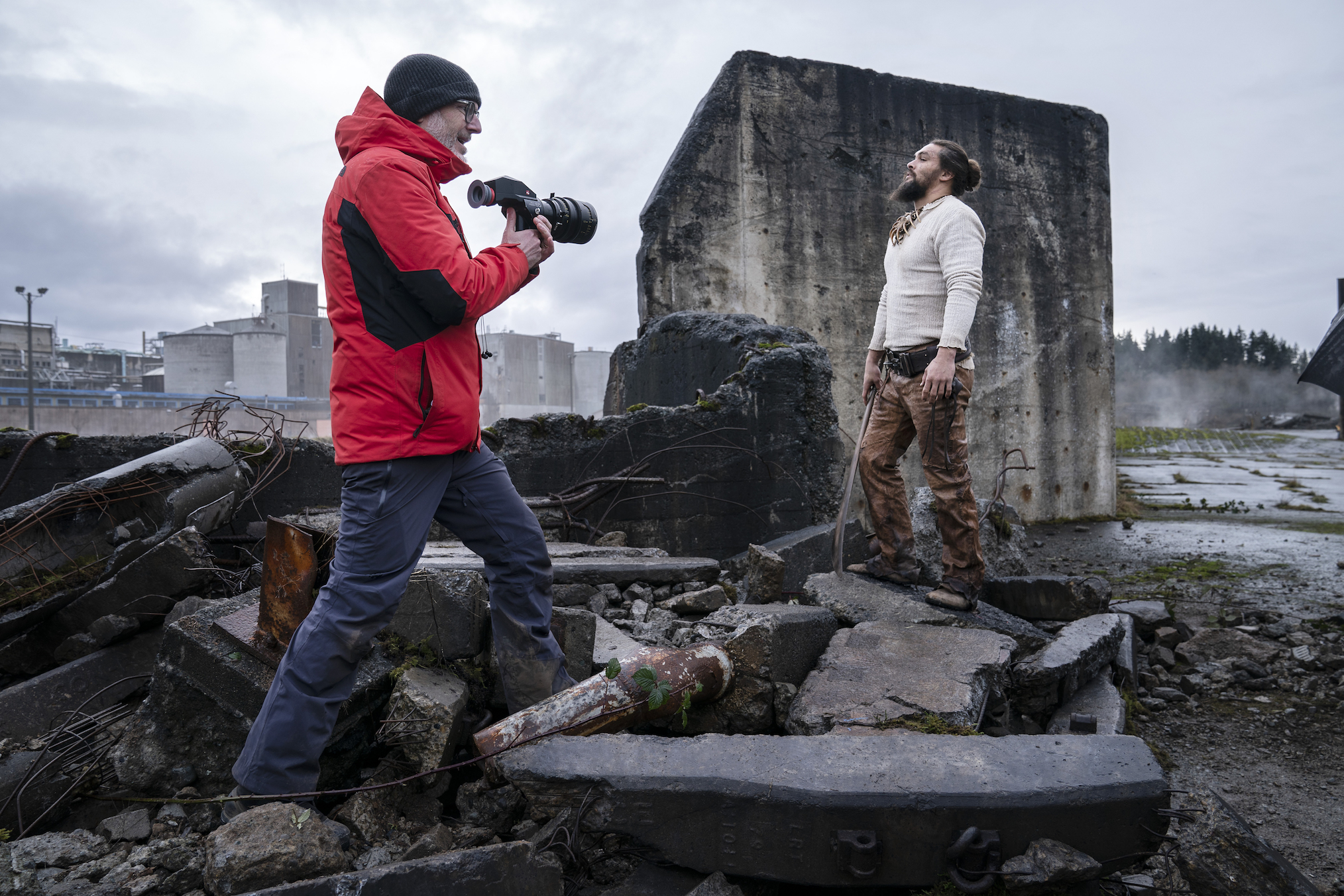
(Apple)
After that, we get Maghra’s (Hera Hilmar) anger and frustration and that scream she lets out after getting her son back. She’s happy he’s alive, but all these secrets are coming out.
That’s actually one of my favorite moments in the three episodes I directed. We had a lot of discussions about that. She’s angry because the box has been opened and the secret has been kept from her for years and she feels very betrayed by her children and her husband and Paris. But she’s willing to set that aside, because the more pressing matter is to save their son. Once everybody is safe, now, she can get angry about this betrayal. Hera Hilmar and I spoke a lot about that anger and how that anger would manifest and whether that’s in a speech or something verbal like we ended up with. It ended up being quite powerful.
Originally in the story, she was going to stay mad at them for a long time, even into other episodes, and we decided she would move past it, that she would let it out in a very visceral way. We talked about it for weeks before we actually shot that scene so we could start to figure out what the emotional arc of her character was going to be through that episode and going into the next episode.
She says she’s going to tell the children about their biological father, Jerlamarel (Joshua Henry). How did you determine when to talk about him?
He’s quite a big mystery through the season, so he’s somebody lots of people talk about. Baba had met him in Episode 2 and it’s a tough thing for him, because Baba is the real father of these children; he’s the one who raised them and the one who loved them. To hear about this guy that has become mythical is pretty tough for him. Paris holds a lot of hope in the idea of this man, what that means to the world. And Maghra has her own feelings in terms of feeling abandoned by him but once loving him.
Everybody has these different opinions about who Jerlamarel is, so people will say different things to the children, depending on what their point of view is. Maghra may warn the children and be sad about him in general, but talk about how he was a good man at one time. Baba tries to play it safe weirdly, because he doesn’t really know the man and just tries to be a good father. Paris, because she holds Jerlamarel as some sort of ideal, consistently says this is a person these children should seek out.
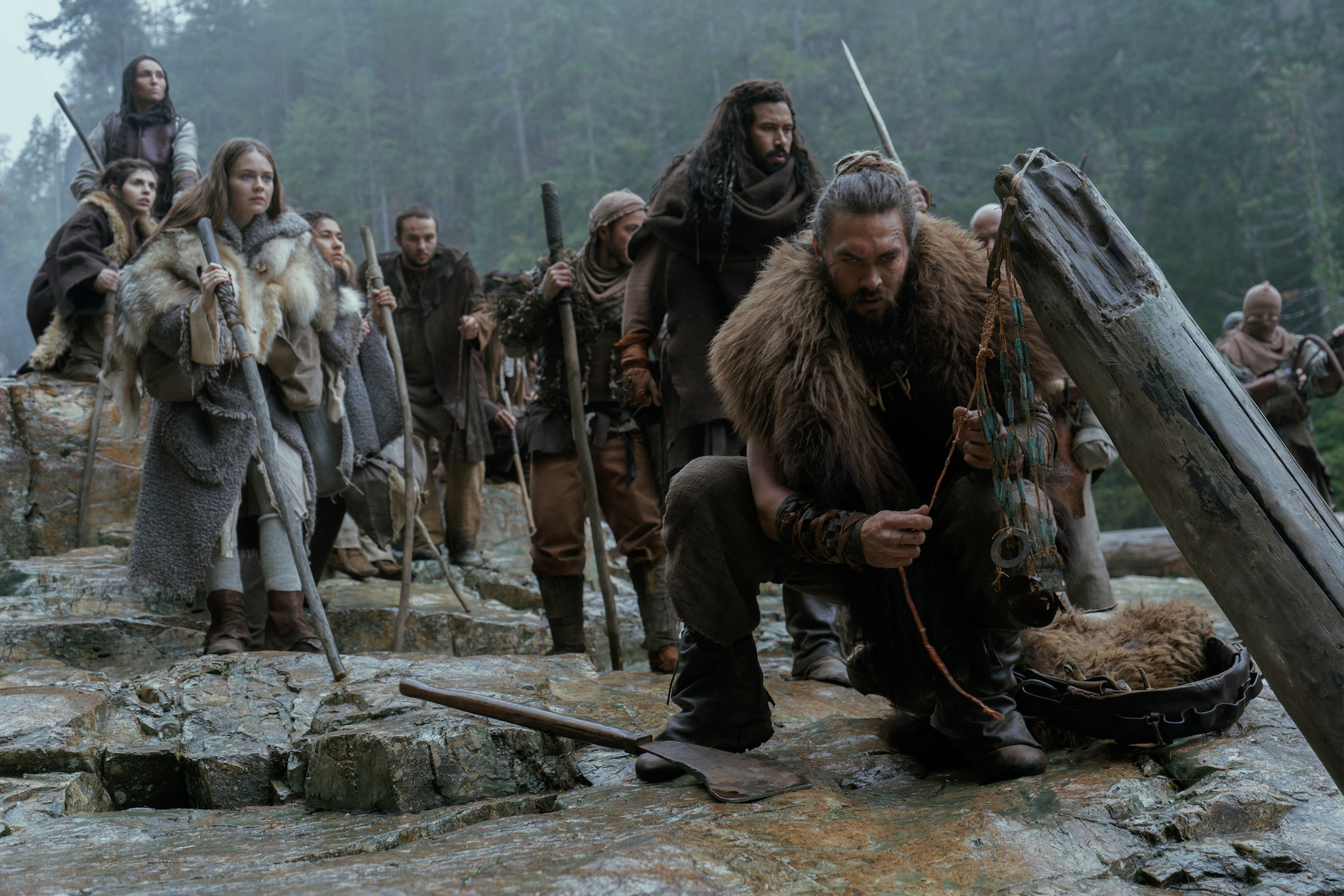
(Apple)
Maghra says, “he was a good man, but sometimes power can consume goodness,” at the end of Episode 3. Are we going to find out exactly what she means in the next episodes?
Yeah. … Whether or not you see him very much, he is serving an important figure in the narrative.
We see how different Kofun and Haniwa are, especially as they get older, when it comes to their views of the world and staying or leaving the village.
What’s interesting to me is they’re bonded because they’re siblings, twins, [and] because they both share a trait nobody else seems to have, but there are different ways of feeling about [their sight].
Haniwa embraces the difference and wants to embrace [it] and really wants to seek out the biological father to understand who she is, whereas Kofun doesn’t like the fact he is different. He’d rather be like everybody else in the village he’s known since he was a child … He wishes he couldn’t see like everybody else and was just accepted as a member of the tribe, and that Baba Voss was really the father and Maghra really his mother and he could just be and have a normal life.
That creates real conflict. And Haniwa is more impulsive and thinks a bit more rashly and Kofun is a little more thoughtful and studious.
Since they’re the only two who can see, is there a fight against ever separating and being on their own?
Maybe. Those kinds of things come into play later in the season or in the series.
Paris (Alfre Woodard) introduced the kids to books in secret. Why did she do that and how does that affect the dynamic between her and their parents now that’s out?
She reveals the books because she really believes that because they can see, they’ve been chosen somehow to make a difference and that it’s a gift that should be nurtured. And she really believes in the message of Jerlamarel and the plan Jerlamarel has left and left her with. But it’s a huge betrayal. You get real fracture in the relationships between Baba Voss and Maghra and Paris.
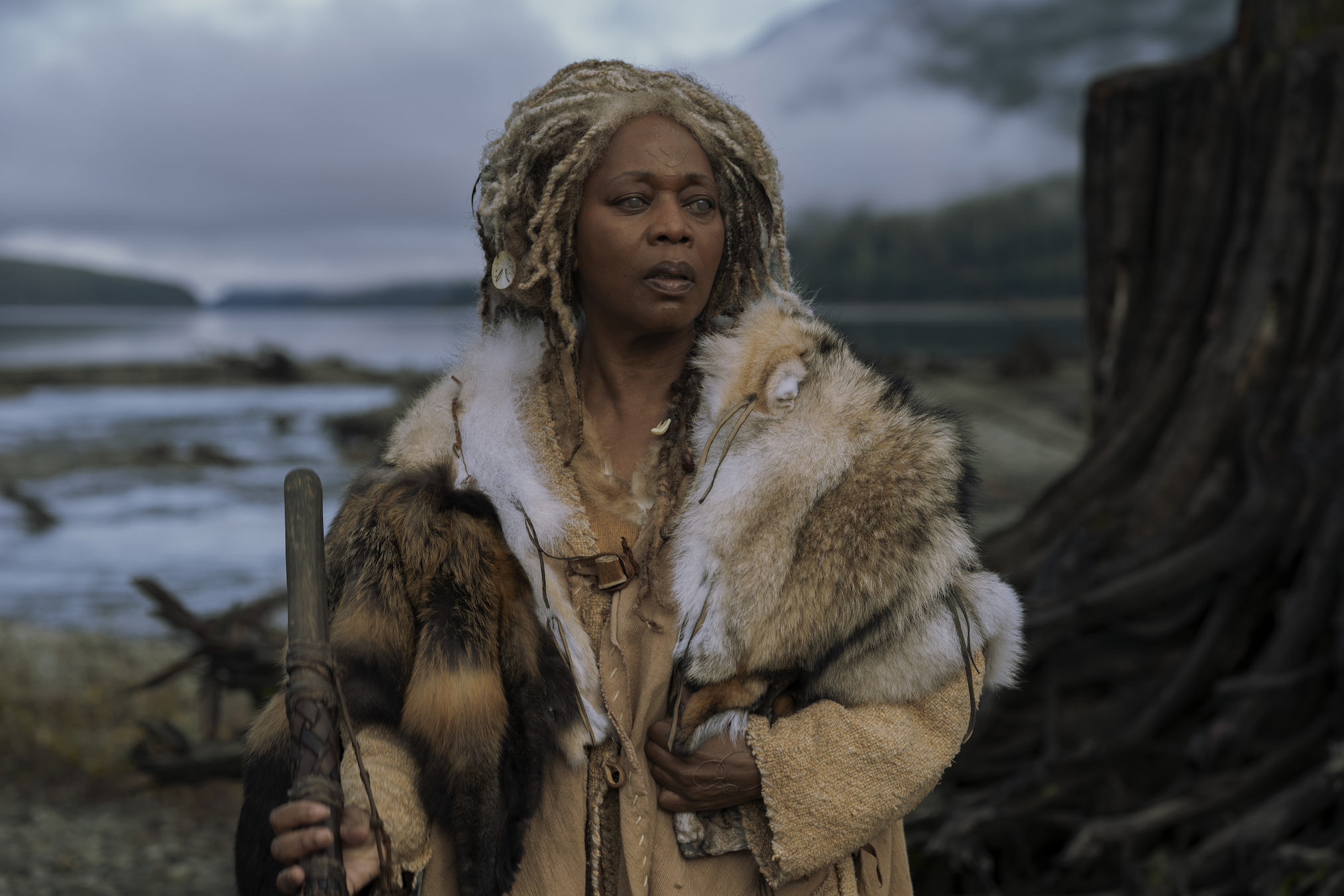
(Apple)
We know there’s going to be a Season 2. What can you say about building Season 1 to its finale? Is there a cliffhanger?
There’s definitely a bit of a cliffhanger, but that’s a tricky thing because sometimes cliffhangers can be obnoxious. It’s not one of those. There is a mystery that’s left hanging in the air.
See, Fridays, Apple TV+
From TV Guide Magazine
Behind the Scenes With Gordon Ramsay: 20 Years of Cooking Up TV Hits
The celebrity chef reflects on redefining culinary television and his fiery journey Hell’s Kitchen to Secret Service. Read the story now on TV Insider.

